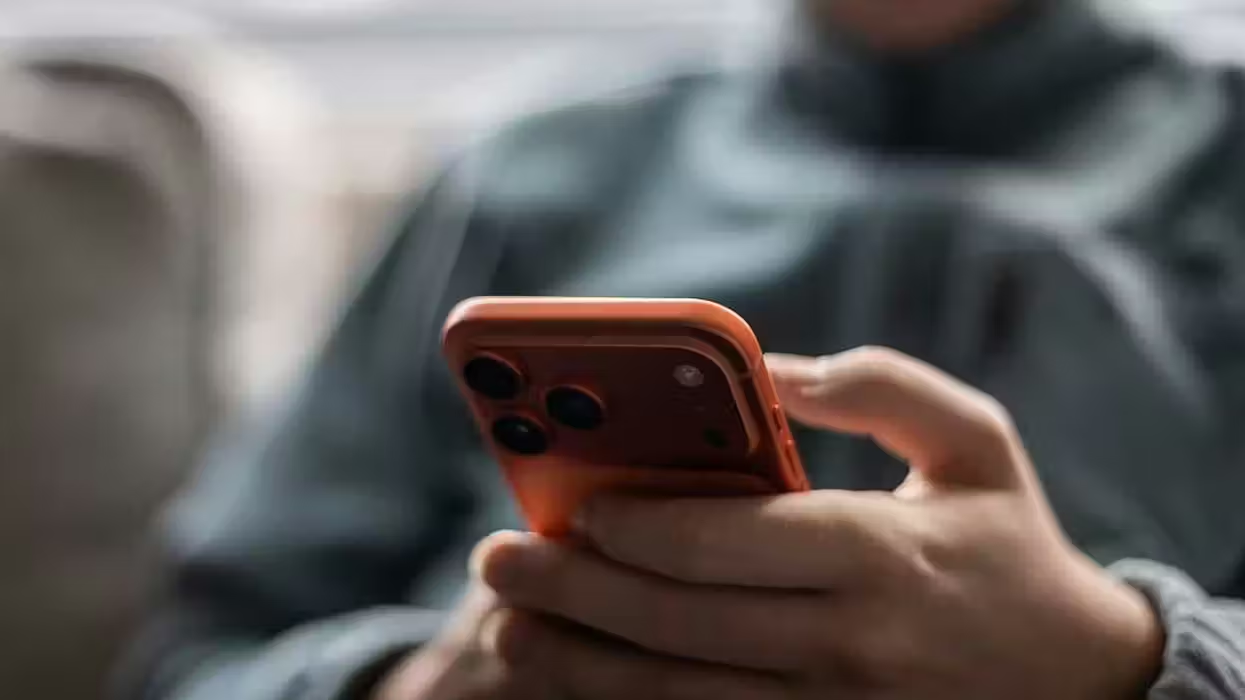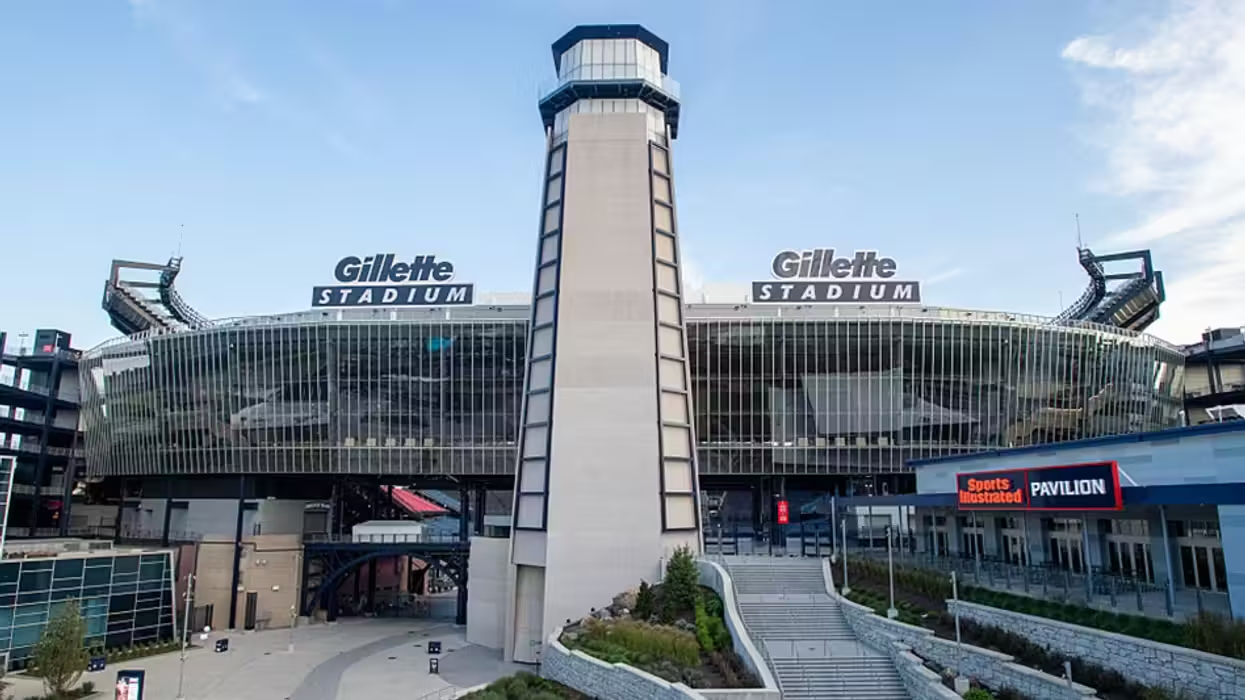
© 2026 Blaze Media LLC. All rights reserved.
"Who wants to live in a totalitarian state when you're under constant electronic monitoring?"
It seems just what constitutes a search and therefore should require a warrant is coming into question more and more as authorities are collecting cellphone and GPS system information to track and receive other intelligence in criminal investigations.
This Tuesday the Supreme Court will begin hearing a case on if GPS tracking in public places -- anywhere outside the home -- without a warrant is constitutional.
USA Today reports that Supreme Court will decide whether "constant surveillance is such an intrusion on people's lives that police need a warrant before attaching a GPS device to a person's car." The case they will hear is that of Antoine Jones, a man who was tracked by GPS for a month in a cocaine trafficking investigation. The investigation lead authorities to find large amounts of cocaine and convict him on this charge in 2008 to life in prison. Jones appealed saying that it violates the Fourth Amendment as a warrantless search, and the Washington, D.C., court of appeals ruled in Jones' favor. The case now moves to the high court was again appealed by the Justice Department.
Vice President of Public Policy for the Center for Democracy and Technology, a privacy advocacy group, Jim Dempsey said he cannot even predict how the case will turn out but that he thinks the court will be receptive to looking at how technology has evolved with respect to the laws that affect it.
"The question is 'How do you apply historical thinking [...] to new technology?'" Dempsey said.
USA Today continues:
Solicitor General [Donald] Verrilli is urging the high court to rely on its 1983 ruling in United States v. Knotts, which said the use of a beeper to track a suspect driving to a drug lab was not a search under the Fourth Amendment. Verrilli says the lower court hearing Jones' appeal wrongly abandoned a longstanding line between private information and information that is "exposed to the public," for example, on roadways.
Several counter arguments that will be reviewed, as reported by USA Today, include if a month of constant tracking could be considered "public". Jones' attorney, Stephen Leckar, said in an interview, "I'm not saying the government can't tail you, but they can't track people relentlessly without a warrant. … Who wants to live in a totalitarian state when you're under constant electronic monitoring?"
Dempsey said that CDT provided the Supreme Court with its own brief focused on the difference between the beepers put on cars in the 1980s and the GPS systems of today. The difference he says is that bumper beepers still relied on an officer making physical observations of the person in question; the beepers weren't as precise at pin-pointing movements nor were they constant, so an officer still sat in a squad car watching. The police were therefore watching actions taking place in public, which anyone stepping outside their home can reasonably expect.
"With GPS, police can track you while they're sitting in their den on their laptop watching a football game on TV," Dempsey said. "Constantly being observed is not reasonable as to what people expect."
Verrilli said in USA Today that just because technology has become more advanced, doesn't mean that the information is "less public."
Dempsey also noted that the court will be reviewing, for the first time, if it's constitutional to actually put a device like this on a car, considering that it's personal property.
"If you scratch my car a millimeter deep, you're messing with my property," Dempsey said. "If you paint an ad on my car, you're messing with my property. The property right is basically the right to say 'Don't touch that; that's mine.' How is placing a GPS different?"
Earlier this year, The Blaze reported another case, which will be heard by the Supreme Court, on the constitutionality of the FBI placing a GPS device a half-Muslim half-American college student's car without a warrant in 2010.
On a slightly different note but still a similar case of questionable adherence to the Fourth Amendment, Wired reports the FBI faking a Verizon cell phone tower to trace a wireless card of an alleged identity thief in 2008. According to Wired, the FBI used a stingray to "trick nearby cellphones and other wireless communication devices into connecting to the tower, as they would to a real cellphone tower." Here's more from Wired on stingrays:
When devices connect, stingrays can see and record their unique ID numbers and traffic data, as well as information that points to a device’s location. To prevent detection by suspects, the stingray sends the data to a real tower so that traffic continues to flow.[...]
The device, however, doesn’t just capture information related to a targeted phone. It captures data from “all wireless devices in the immediate area of the FBI device that subscribe to a particular provider” — including data of innocent people who are not the target of the investigation, according to the affidavit. FBI policy requires agents purge all data stored in the surveillance tool at the conclusion of an operation, so that the FBI is not collecting “information about individuals who are not the subject of criminal or national security investigations,” the affidavit added.
Daniel David Rigmaiden, defending himself, argued because the device was used to locate his wireless card inside his apartment that it constituted a search, and therefore violated his fourth amendment rights without a warrant. As Wired reports, it was acknowledged by the prosecution that this could be considered a search, but that they were covered by the warrant the requested to obtain information directly from Verizon and that they didn't need a separate warrant for the fake tower.
Dempsey notes that cell tower information from the company can be obtained without a warrant. He said that with each company wanting to provide the best service, which requires more cell towers, it could get easier in general to obtain information of your whereabouts without a warrant. He said that the cell company collects information about ever seven seconds from the cell tower you're connecting to, which therefore pins a location pretty close to where you are.
Imagine you had poor cell service in your house, Dempsey said providing an example. You could essentially get a tower put in your house; almost every floor of office buildings have their own cell tower now for good service. Now you have a precise location of your inside your home, Dempsey said, where you and anyone who visits you and uses their cellphone can be picked up as data by the cell company, which doesn't require a warrant for information.
Want to leave a tip?
We answer to you. Help keep our content free of advertisers and big tech censorship by leaving a tip today.
Want to join the conversation?
Already a subscriber?
more stories
Sign up for the Blaze newsletter
By signing up, you agree to our Privacy Policy and Terms of Use, and agree to receive content that may sometimes include advertisements. You may opt out at any time.
Related Content
© 2026 Blaze Media LLC. All rights reserved.
Get the stories that matter most delivered directly to your inbox.
By signing up, you agree to our Privacy Policy and Terms of Use, and agree to receive content that may sometimes include advertisements. You may opt out at any time.







